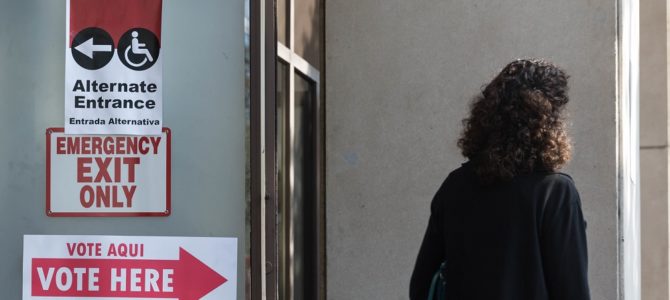
A unanimous Supreme Court just closed off a potential avenue for stealing the 2020 presidential election. In 2016, Democrats succeeded in nullifying the equivalent of hundreds of thousands of lawfully cast Donald Trump votes by pressuring electors to contravene state popular election results.
After Trump shattered expectations by winning in November 2016, his opponents launched one last bid to deprive him of victory by leaning on electors. Electors complained of thousands of emails, texts, and phone calls pressuring them to change the election results. Hollywood actors recorded a video urging electors to nullify Trump votes by breaking with their voters to deny Trump the presidency.
While three justices filed a concurring opinion, all nine agreed states have a right to take steps to prevent electors from freelancing their votes in contravention of the popular election results within individual states. As the court noted,
Americans cast a ballot for a presidential candidate. Their votes, though, actually go toward selecting members of the Electoral College, whom each State appoints based on the popular returns. Those few ‘electors’ then choose the President. The States have devised mechanisms to ensure that the electors they appoint vote for the presidential candidate their citizens have preferred. With two partial exceptions, every State appoints a slate of electors selected by the political party whose candidate has won the State’s popular vote. Most States also compel electors to pledge in advance to support the nominee of that party. This Court upheld such a pledge requirement decades ago, rejecting the argument that the Constitution demands absolute freedom for the elector to vote his own choice.
Anti-Trump activists argued for free-agent electors as a last-chance mechanism to stop the election of a candidate they opposed. During the brief December 2016 campaign to stop Trump by persuading his electors to defect, the Central Intelligence Agency leaked the existence of an assessment that claimed Russia helped Trump win the presidency.
Electors (including the daughter of Democrat House Speaker Nancy Pelosi) then published an open letter seeking an “intelligence briefing” of the electors to expose them to the allegations contained in the now-debunked Christopher Steele dossier. The letter invoked Federalist Paper No. 68 to justify nullifying the election to prevent Russia from controlling the presidency through Trump.
The letter included several claims that remain in dispute or have been disproven since 2016. As I noted last year,
The letter cited an account of Roger Stone’s communication with Wikileaks founder Julian Assange (which was false) and asserted that Stone knew about the hacked emails before they were released (which was also false).
The letter also cited unspecified contact between unspecified Trump aides and those associated with the alleged Russian election interference. This likely is a reference to the Steele allegation that Cohen traveled to Prague to pay-off Russian hackers (which was also false). Or it may have been a reference to the Steele dossier’s claim that former campaign manager Paul Manafort coordinated communication between the Russian government and the Trump campaign (also false). The letter further claimed that Carter Page met with the Putin aide in charge of the Russian intelligence on the U.S. election. That appears to refer to a meeting between Carter Page and Igor Divyekin (which didn’t happen).
On December 12, 2016, Hillary Clinton campaign chairman John Podesta joined the calls for an intelligence briefing.
Writing for the Supreme Court this week, however, Justice Elena Kagan rejected the constitutional argument that electors should remain free to contravene their voters: “Whether by choice or accident, the Framers did not reduce their thoughts about electors’ discretion to the printed page.”
The matter came to the Supreme Court when “faithless” electors bizarrely refused to vote for Clinton as a protest against Trump’s apparent victory. The state of Washington fined each $1,000 for failing to adhere to the wishes of their voters.
The Supreme Court not only upheld this fine, it also approved alternate means of ensuring electors would not overrule their voters. The same decision upheld a related Colorado effort to force electors to vote in accordance with the state election results.
The decision is also noteworthy for its reference to the Broadway play, “Hamilton,” which also may have inspired the pressure campaign to flip electors. Kagan quipped, “Alexander Hamilton secured his place on the Broadway stage—but possibly in the cemetery too—by lobbying Federalists in the House to tip the election to Jefferson, whom he loathed but viewed as less of an existential threat to the Republic.”









